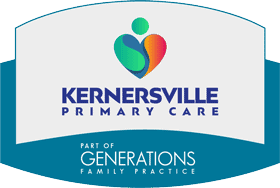Opioid Use Disorder Treatment Clinic in Kernersville NC
Opioid addiction treatment can save lives and help people get their lives back on track by counteracting addiction’s powerful effects on their brains and behavior. Visit Dr. Andrew Chow, MD, FACP, for opioid use disorder treatment at Kernersville Primary Care. For more information, contact us or visit us online to book an appointment. We are conveniently located at 420 West Mountain St. Kernersville, NC 27284.




Table of Contents:
Is it possible to overcome an opioid addiction?
What is the most effective treatment to undergo when suffering from opioid use disorder?
What percentage of people with opioid use disorder receive treatment?
How long does it take for a person to overcome opioid use disorder?
People with opioid use disorder use opioids even though they may harm themselves or others. A person with more symptoms of this disorder may be suffering from a more severe form of it. The term addiction is sometimes used to describe opioid use disorders that range from moderate to severe. The condition may make it difficult for people to control their use.
Opioids, including prescription opioids (when used without a prescription or differently from how your doctor prescribed them) and illegal opioids, can lead to this disorder.
There are treatments available for addiction, just as there are for most chronic diseases. It is possible for you or someone you know to get treatment if they are struggling. Even though no one treatment method fits everyone, recovery is possible, and opioid addiction can be treated.
Finding treatment options and preventing overdose deaths are the first steps to recovery. Opioid addiction treatment can save a life and help people get their lives back on track by counteracting addiction’s powerful effects on their brains and behavior. Treatment aims to return people to productive functioning at home, at work, and in their communities.
Depending on the patient’s individual needs, opioid addiction treatment can take many different forms, take place in a variety of settings, and last for a variety of lengths.
The use of medications and combining medications with behavioral therapy are evidence-based approaches to treating opioid addiction. It is more likely that a recovery plan that includes medication for opioid addiction will be successful.
Drugs that treat opioid addiction can reduce withdrawal symptoms, relieve cravings, and normalize brain chemistry in some cases. In addition to the medical decision to include medication in recovery, there is substantial evidence that medications support successful recovery.
In the United States, opioid overdoses and deaths continue to rise, but medications such as methadone, buprenorphine, and extended-release naltrexone have been proven to reduce opioid overdoses by more than 50%.
Over the last decade, medication-assisted treatment has seen a growth of more than 100 percent in opioid use disorder. However, this increase in treatment has not kept pace with the skyrocketing overdose mortality rates caused largely by fentanyl, a synthetic opioid 50 times stronger than heroin, and OUD.
There is evidence that medication-assisted treatment reduces opioid overdoses. Despite this, there is a large gap between the prevalence of opioid use disorder and the number of patients who receive medication access. Three safe and effective medications can help people with opioid use disorder quit and stay in recovery, but only 11 percent of people receive them.
Depending on how long a patient or client needs to deal with the emotional, physical, and/or social issues that led to their opioid use in the first place, treatment lengths vary. It may take as little as a few months or as long as several years – everyone’s journey is unique. A longer treatment period (more than six months) is generally associated with better health outcomes.
An opioid use disorder cannot be treated with withdrawal management alone, also called detox. The majority of people who stop taking opioids without being stabilized on opioid agonists relapse very quickly when they stop taking them without first stabilizing their tolerance. The risk of a fatal overdose is much higher if someone begins using drugs at the same dosage they used previously.
Opioid use disorder treatment is available at Kernersville Primary Care. We are conveniently located at 420 West Mountain St. Kernersville, NC 27284. For more information, contact us or schedule an appointment online. We serve patients from Kernersville NC, Colfax NC, Walkertown NC, Oak Ridge NC, Wallburg NC, Belews Creek NC, Winston-Salem NC, and surrounding areas.
Check Out Our 5 Star Reviews

Additional Services We Offer


- Family Practice
- Internal Medicine
- Weight Loss Management
- Opioid Use Disorder Treatment
- Telehealth Visits
- Full Laboratory Services
- Covid Testing
- Women’s Health
- Sports and Camp Physicals
- Same Day Appointments
- Acute Sick Visits
- Preventive Health Screenings
- Chronic Care Management
- Annual Physicals
- Pre-employment Physicals
- School Physicals
- Wegovy
- Zepbound


